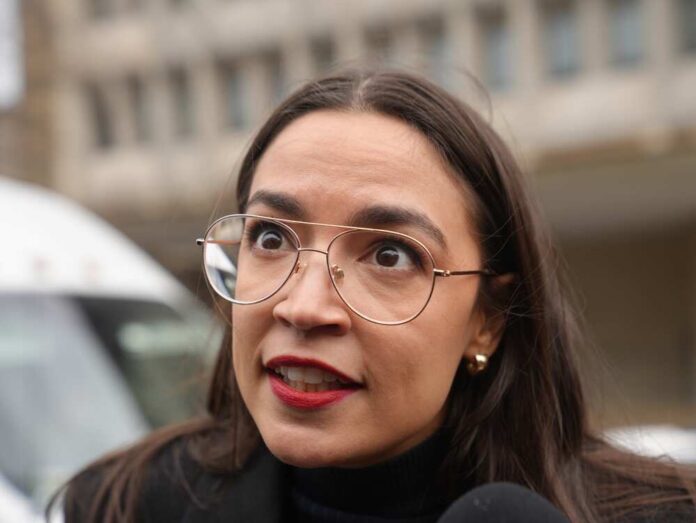
On April 17, a significant protest erupted at Columbia University in New York City while the university’s President, Dr. Minouche Shafik, testified before Congress on issues of antisemitism. The students, rallying in support of Palestinians, demanded that the university sever its ties with Israel in response to the situation in Gaza. The demonstration led to the arrest of over 100 participants, drawing considerable attention and commentary, including from a New York lawmaker.
A week later, on April 24, Representative Alexandria Ocasio-Cortez (D-NY) criticized the university and the NYPD in a social media post. She shared a video showing NYPD counterterrorism officers at the protest and condemned the university for involving the police and criticized the NYPD for deploying officers she described as having “the most violent reputations on the force” to a student demonstration.
In her critique, Ocasio-Cortez questioned the NYPD’s decision to send a counterterrorism unit to the protest, highlighting a previous commitment by the city not to use its strategic response group (SRG) for such purposes. NYPD Chief of Patrol John Chell quickly responded, defending the action on social media. He rebuked the students for not understanding the “consequences of their actions,” describing them as “self-entitled” and emphasized that high SAT scores do not place them above the law. Chell praised his officers for handling the situation with care and professionalism, asserting that there were no incidents during the removal of students.
Chief Chell also addressed the accusations of antisemitic rhetoric at the protest, challenging Representative Ocasio-Cortez to witness firsthand the type of speech being used against his officers. He assured that NYPD units would provide her with protection should she choose to visit.
The protest at Columbia University is part of a broader national response, with similar demonstrations occurring at universities across the country. These protests have sparked a debate about whether they represent antisemitic sentiments or are legitimate, coordinated calls for action to protect civilians in Gaza. This ongoing discussion highlights the complex interplay of free speech, university policies, and international political issues.














